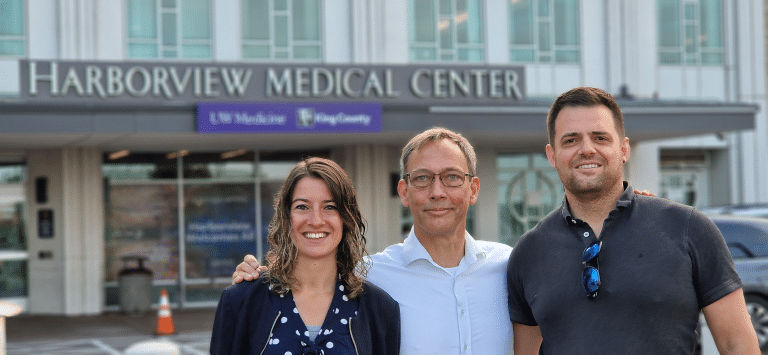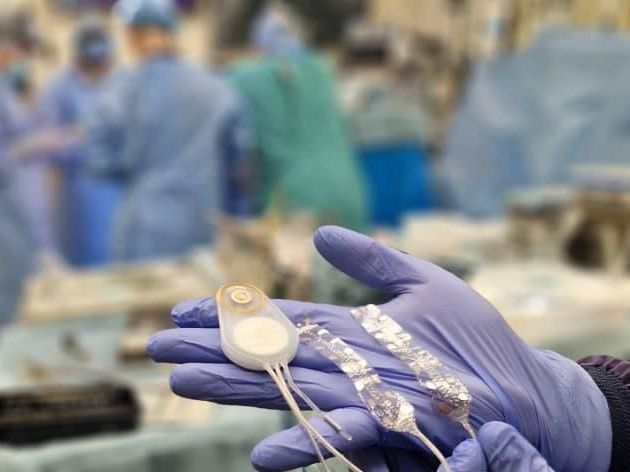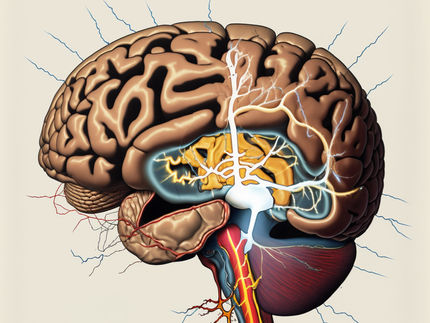First Human Implantation of a Brain-Computer Interface made in Germany
CorTec Announces Neurotech Milestone: “This breakthrough opens the door to therapies that were once unimaginable”
Advertisement
CorTec GmbH, a pioneer in active implantable medical technologies, announced the first human implantation of its proprietary BCI system, Brain Interchange™, marking a pivotal advance in translating laboratory research into real-world clinical applications.

CorTec Team at Harborview Medical Center (Marina Buchheit, Dr. Martin Schuettler, Dr. Alexis Gkogkidis)
CorTec GmbH

The closed-loop BCI system, developed entirely in Germany, is currently being evaluated in an FDA-approved clinical trial with stroke patients at Harborview Medical Center in Seattle, a part of UW Medicine
CorTec GmbH


The procedure took place in late July at Harborview Medical Center (Seattle) under an FDA Investigational Device Exemption (IDE). Led by Principal Investigator Jeffrey G. Ojemann, MD, from the University of Washington School of Medicine in Seattle and Co PI Professor Steven C. Cramer from the University of California, Los Angeles, this trial will gather initial safety data and evaluate whether direct cortical electrical stimulation can enhance upper-limb motor recovery in stroke patients. The study is funded by the National Institutes of Health (NIH).
“We’re thrilled to share that the implantation procedure was a success and, most importantly, the patient is in good condition and recovering well from the surgery. We’re incredibly grateful for this initial outcome in our first study participant. Both the therapeutic strategy and the technology we are using are entirely novel. While we proceed with careful optimism, the potential benefits for patients are promising,” commented Jeffrey G. Ojemann, MD, Vice Chair and Professor of Neurological Surgery, University of Washington School of Medicine.
This novel approach offers highly precise and personalized treatment for neurological conditions. The implant system continuously records brain activity, instantly interpreting signals and delivering targeted electrical stimulation in real time to enhance neuroplasticity, the brain’s ability to reorganize neural networks. The study explores whether this can help the brain relearn lost functions, thereby accelerating and improving rehabilitation of patients.
“The first implantation of our BCI marks a milestone for European medical neurotechnology and underscores CorTec’s emergence as Germany’s first implantable BCI developer, ready to compete on the global stage,” said Dr. Frank Desiere, CEO of CorTec. “Building on our extensive experience in developing advanced components and active implantable systems, our proprietary cutting-edge BCI system is now entering human clinical testing, aiming to help people affected by neurological diseases recover lost function and enhance their quality of life. We are proud of this new era of innovation and are committed to expanding the possibilities of neurotechnology to improve outcomes for patients.”
Today in the US and Europe alone, 1.7 million people annually have a stroke that frequently involves loss of upper limb function. While physical therapy alone can help many patients regain function, it is sometimes not sufficient. Patients with a BCI may benefit from neuroplasticity-inducing stimulation during their rehabilitation. Regaining control of their upper limbs would enable patients to be more independent and have a better quality of life.
“This breakthrough opens the door to therapies that were once unimaginable,” added Dr. Martin Schuettler, CTO of CorTec. “For the first time, our BCI system connects wirelessly to external hardware – no cables, no physical links. This approach is part of the transformation of neurological therapies worldwide, built on a technology platform that can be tailored to multiple neurological conditions, delivering real-time, patient-specific treatment. I’m incredibly proud of our team and our partners, in particular Jeffrey G. Ojemann and Jeffrey Herron of UW Medicine, who turned years of research into real hope for patients.





















































